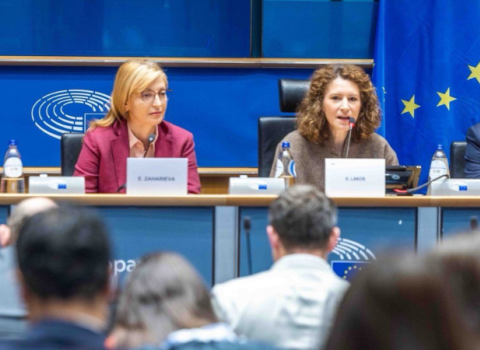
MEP Antonio Fernando Correia de Campos
The former Portuguese health minister, whose PhD is in health economics, says the European Commission isn’t taking the problem seriously enough.
The Commission’s response to these diseases is, “very weak, lip service really - no more than that - banalities,” Correia de Campos, a new Socialist member of the European Parliament, told Science|Business in an interview.
The Commission is encouraging countries across Europe to pool resources and coordinate research in Alzheimer’s. Correia de Campos suggests that the Commission is offering little that doesn’t already exist.
“What new, practical measures is the Commission thinking of adopting to stimulate cooperation in research, in a situation where resources and teams already exist, although they are fragmented?” he asked in a November 2009 debate. He questioned whether simply making better use of existing resources and giving the issue greater visibility will be enough.
The response is little more than a nod to the latest “fashion”, he says, much as cancer research was the big health issue of the 1980s. Then, the net result was “not very visible,” says Correia de Campos, there was no equivalent of getting, “a man on the moon.”
The incidence of both cancer and neurodegenerative diseases is increasing as Europe’s population ages. While a wide range of treatments for cancer means that survival rates are going up, there are as yet no disease-modifying treatments for diseases such Alzheimer’s and Parkinson’s, and very few palliatives either.
Correia de Campos underlines the importance of care and ensuring that this aspect isn’t forgotten in a preoccupation to find a cure, which he points out is almost impossible. This “imbalance” between cure and care needs to be addressed, he said. Research and technological developments to improve care for the elderly are areas that deserve a lot of attention, he said.
The MEP acknowledges it is difficult for the Commission to change the current situation – not only is there the significant intellectual challenge of developing treatments, there is also the issue that the European Commission has no control over the national health policies of member states.
Nonetheless, Correia de Campos believes the EU can play a useful role:
Individual member states could be encouraged to specialise in particular diseases, to enable more resources to be devoted to each one. He also suggests this focus on specialism could go as far as people travelling from one country to another for specialist treatment, though he acknowledges there would be obstacles to this, not least the patients’ reactions.
EU presidencies can be used as a way to use a nation’s enthusiasm to inject momentum into a topic. For example, Slovenia revived the cancer issue, achieving a political commitment from member states to reduce the burden of cancer.
Meanwhile the European Parliament can make a difference by:
Making a declaration of interest – as Correia de Campos says, this may not sound much, but it will enable progress to be made step by step.
Raise the profile of the issue, which may lead to more money in the next Framework Programme. This need not only mean funding research on new drugs, but also on areas like ICT, transport technologies and smart grids that have an impact on helping people maintain their independence and how they are cared for.
Have no doubt, says Correia de Campos, politics plays a role in which diseases and areas get research funding. It is hard to say one disease deserves more than another, and it is important to bear in mind that giving money to one area means withholding it elsewhere. And, the MEP cautioned, every health minister will always say, “All the money you can give me will be well used.”
But if an issue is put in the limelight, such has been the case for neurodegenerative diseases, then initiatives have to have teeth. As Correia de Campos puts it, something new has to be brought to the table, not just old ideas in new wrapping.





 A unique international forum for public research organisations and companies to connect their external engagement with strategic interests around their R&D system.
A unique international forum for public research organisations and companies to connect their external engagement with strategic interests around their R&D system.